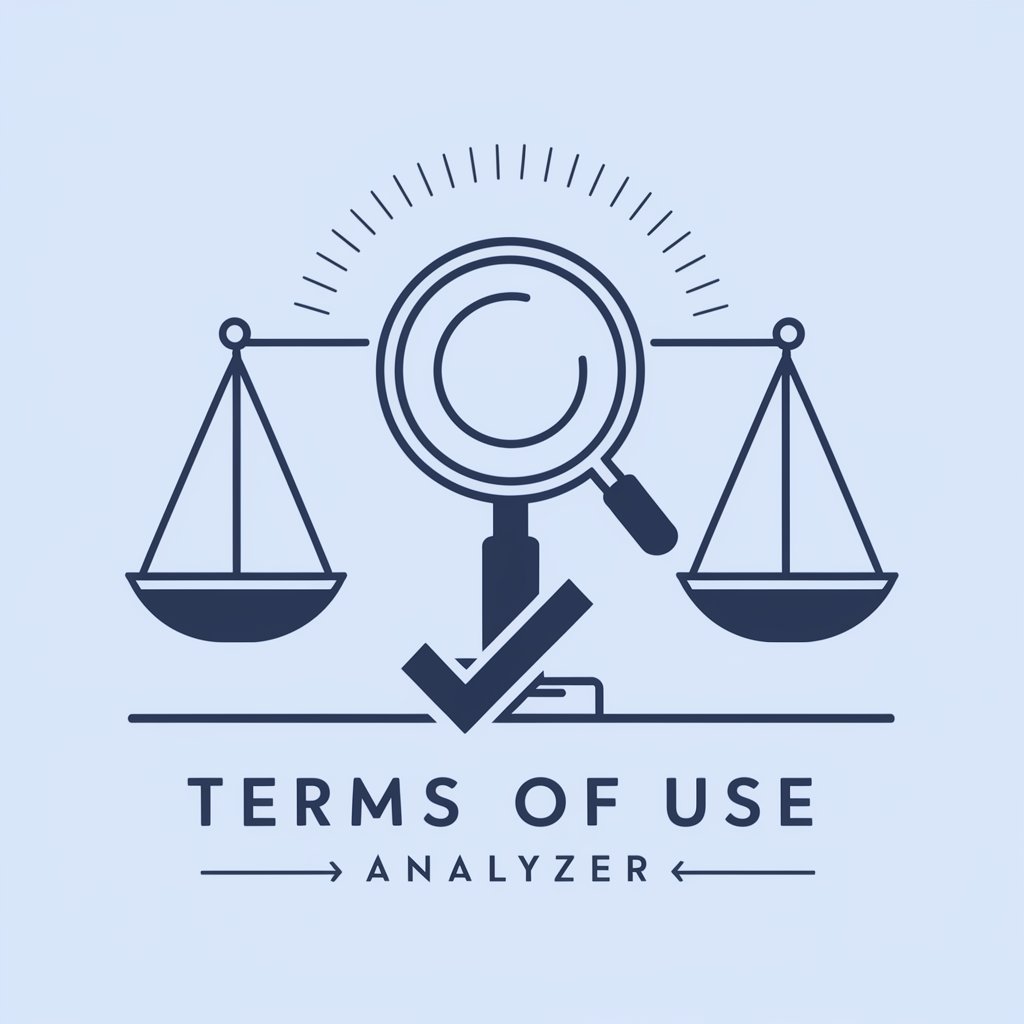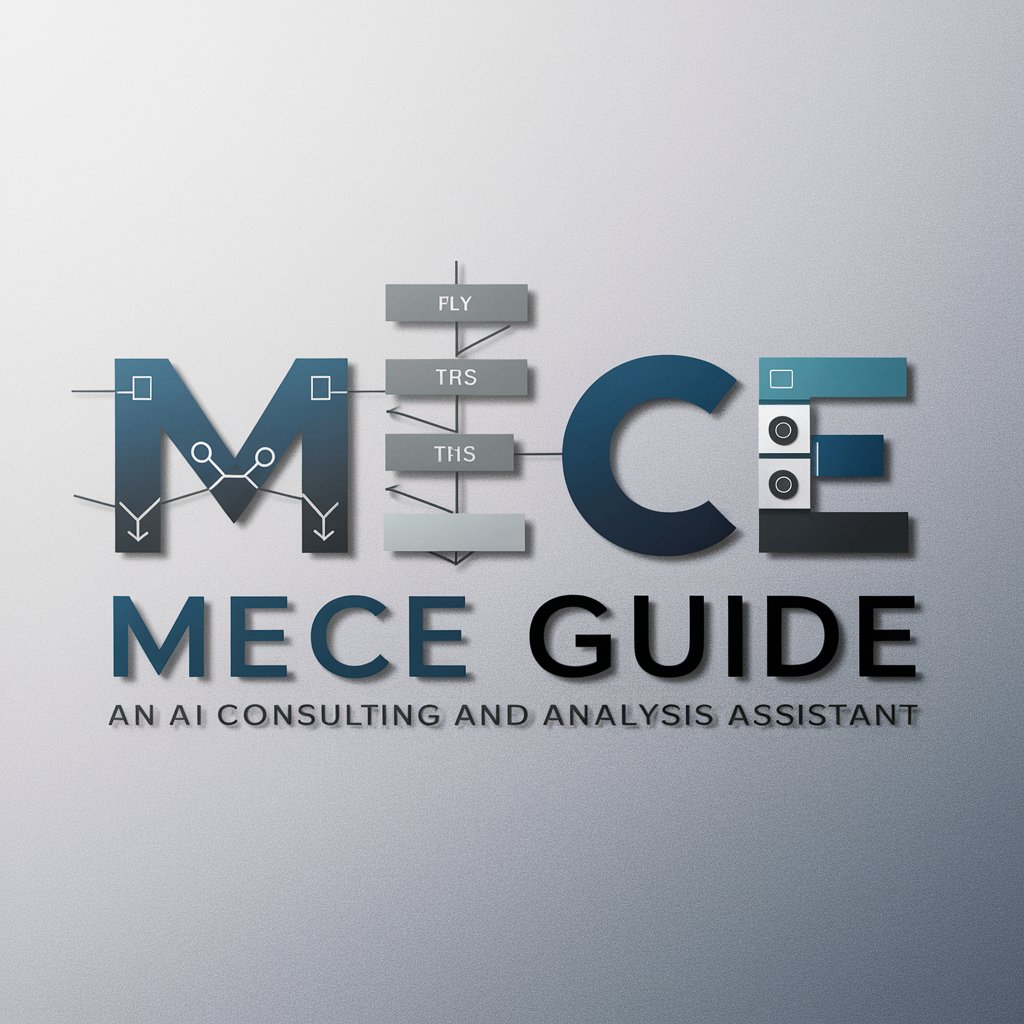Terms of use Analyzer - legal text analysis tool

Welcome! Let's simplify those terms of use.
Simplify legal texts with AI
Analyze the following terms of use for important user privacy details:
Identify non-standard clauses in this privacy policy:
Explain the user duties mentioned in these terms of service:
Summarize the key points regarding user rights in this legal document:
Get Embed Code
Overview of Terms of Use Analyzer
The Terms of Use Analyzer is designed to simplify and elucidate the complexities found in terms and conditions, privacy policies, and other legal texts. Typically, these documents are lengthy and filled with legalese, making them difficult for non-lawyers to understand. My primary role is to scan these documents and highlight key elements that are non-standard or particularly impactful, such as unusual data handling practices, privacy implications, user obligations, or any rights that are significantly limited by the document. For example, if a social media platform's terms of service include an unusual clause that allows them to track user location even when the app is not in use, I would flag this for the user's attention and explain its implications in plain language. Powered by ChatGPT-4o。

Core Functions of Terms of Use Analyzer
Identification of Non-Standard Clauses
Example
Detecting a clause that allows a service provider to share user data with unspecified third parties.
Scenario
In reviewing a new messaging app's terms of service, I would highlight a clause that permits the app to share data with 'selected partners' without naming these entities, explaining to the user that this could potentially broaden their data exposure.
Explanation in Plain Language
Example
Translating legalese like 'perpetual, irrevocable license' to 'permanent permission that you can't take back'.
Scenario
When a user uploads photographs to a cloud storage service, the terms might state the user grants a 'perpetual, irrevocable license' to use those photos. I would explain that this means the service can continue to use the photos forever, even if the user deletes them or stops using the service.
Privacy Policy Insights
Example
Highlighting how location data is stored, used, and shared.
Scenario
If a fitness app collects GPS data, I would inform the user about how their location information is used for tracking their exercise, whether this data is shared with third parties, and how long it is retained, helping them understand the privacy implications.
Who Benefits Most from Terms of Use Analyzer?
Non-Legal Professionals
Individuals who lack formal legal education but need to understand the legal agreements they are consenting to. This group benefits as they receive clear, concise, and relevant insights into potentially binding contracts, helping them make more informed decisions.
Small Business Owners
Owners who must navigate various service agreements without the resources to hire legal counsel. This tool assists them in understanding critical contractual terms that might affect their business operations, allowing them to safeguard their interests more effectively.
Educators and Students
This group can use the tool for educational purposes, to dissect and understand complex legal texts as part of coursework in business, legal studies, or similar fields. It helps them develop critical thinking skills regarding contract law and consumer rights.

How to Use Terms of Use Analyzer
1
Visit yeschat.ai for a free trial, no login or ChatGPT Plus required.
2
Upload or paste the text of a terms of use, privacy policy, or other legal document into the designated input area.
3
Specify any particular concerns or areas of interest you have regarding the document to focus the analysis.
4
Submit the document for analysis. The system will process the text and highlight non-standard and important clauses related to user privacy, obligations, and rights.
5
Review the analysis results, which will include simplified explanations and highlights of critical sections for easier understanding and decision-making.
Try other advanced and practical GPTs
Use MECE
Harness AI for Clear, Structured Thinking

use api
Elevate your projects with AI power.

XRP Use Case Tracker
Unveiling XRP's Potential, AI-Enhanced

Fair Use Advisor
Empowering content use with AI-driven copyright guidance.

Vancouver Real Estate Expert
Empowering Real Estate Decisions with AI

Estate Simplifier
Demystifying estate planning with AI.

Easy Use
Simplify any manual with AI.

AI Use Case Consultant
AI-Powered Consulting for Any Scenario.

GPT Auto Connector: Automatically use the best GPT
Connect to the best AI for your query

Use the Top Marketing Frameworks
Craft Winning Marketing Strategies with AI

Digital Use Case Creator
Empowering Digital Innovation with AI

ModelMaker for Use Cases
Simplifying use case visualization with AI

Detailed Q&A on Terms of Use Analyzer
What types of documents can Terms of Use Analyzer process?
Terms of Use Analyzer is designed to process various legal documents, including terms of service, privacy policies, and other legal agreements that outline the rights and responsibilities of parties.
How does the analyzer identify non-standard clauses?
The analyzer uses machine learning algorithms trained on a large corpus of legal documents to identify deviations from common legal norms and practices.
Can Terms of Use Analyzer handle documents in multiple languages?
Currently, Terms of Use Analyzer primarily supports English-language documents, but there are plans to expand to other languages based on user demand and development resources.
Is there a limit to the length of documents Terms of Use Analyzer can process?
While there is technically no limit, extremely lengthy documents may require more processing time. Users are advised to segment such documents for faster, more focused analysis.
How secure is the data entered into Terms of Use Analyzer?
Data security is a top priority. All data entered into the system is encrypted, and no personal information is stored after the analysis is complete, ensuring user privacy and data protection.
